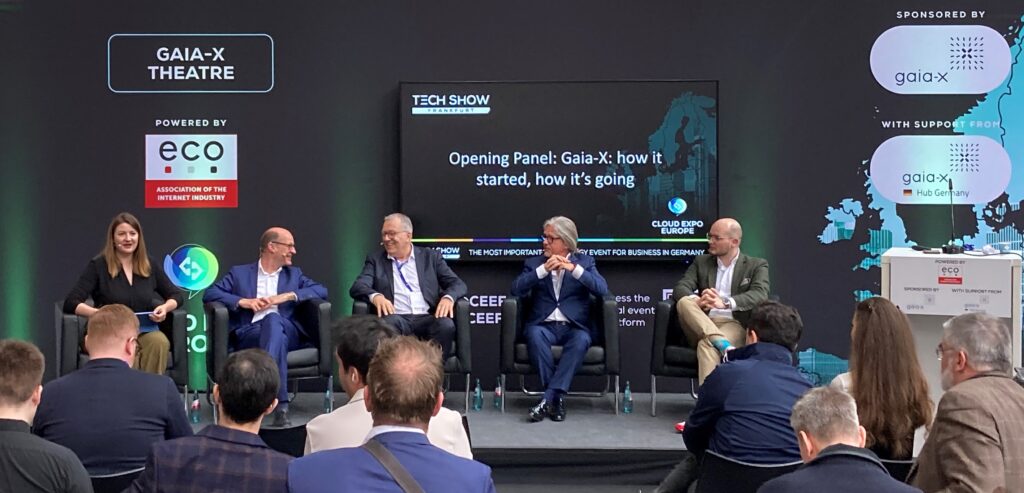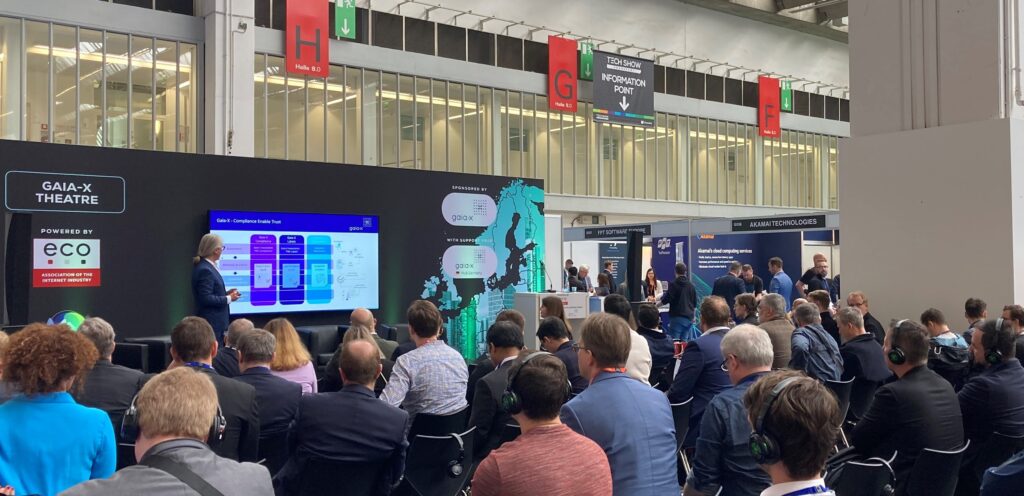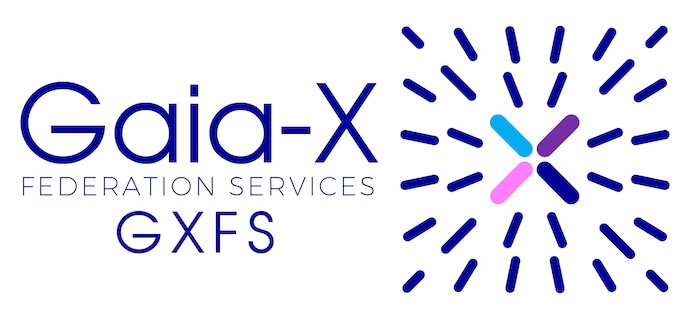Create more value digitally and give more weight to Europe as a data location: Gaia-X is driving the shift from a product-centric to a data-centric world. At Cloud Expo Europe, the IT industry discussed why the economy and society need cloud technology.


It doesn’t matter whether it’s an energy crisis, a COVID-19 pandemic or a war in Ukraine: “The world is changing,” said Francesco Bonfiglio, CEO at Gaia-X AISBL, “digital sovereignty is going from a political concept to a key component.” A component that not only makes new business models possible but keeps societies intact. “Ukraine outsourced its administrative infrastructure to the cloud a few days before the invasion,” said Sharinee Jagtiani, a researcher at the Hasso Plattner Institute for Digital Engineering, “cloud computing is part of the critical infrastructure.” At Cloud Expo Europe, the IT industry discussed the role of the technology and the opportunities it offers the economy and society.
Gaia-X merges defragmented provider landscape
No matter whether supply chains, goods movements or customer relationships: “We are moving from a product-centric to a data-centric world,” Bonfiglio stated, “Clouds are the infrastructures through which all information flows.” Transport systems that are increasingly travelled on: “While demand is increasing, the number of cloud providers is shrinking,” Bonfiglio added. As a result, if an increasing amount of information is concentrated with decreasing number of providers, there is a risk of dependencies and also imbalances that Europe is challenging with Gaia-X.
According to Bonfiglio, “Gaia-X is transparent and interoperable.” Peter Kraemer, Head at the Gaia-X Hub Germany added that “Gaia-X is a self-fulfilling prophecy.” A prophecy that must necessarily become real in order to unite decentralised data spaces via distributed infrastructures based on European values and standards. “On the one hand, to create more value digitally,” said Kraemer, “and on the other hand, to interconnect Europe’s defragmented provider landscape on one infrastructure for increasing data traffic.”
Catena-X: Germ cell for Germany’s digital economy
Create more value digitally and give more weight to Europe as a data location: “The automotive industry is at the heart of many of Gaia-X’s use cases,” said Ernst Stöckl-Pukall, Head of the Department for Digitalisation and Industry 4.0 at the German Federal Minister for Economic Affairs and Energy (BMWi) . “In a way, the industry is a nucleus for our economy,” said Stöckl-Pukall; a nucleus from which information should increasingly find digital paths into other sectors – whether subcontractor, supplier or input supplier.
Catena-X shows that this is possible: “We are in the beta phase and very satisfied,” according to Julia Jeroch, Product Owner Catena-X at BMW. The first customers of the car manufacturer are already collaborating via the open data ecosystem. Gaia-X 4 Future Mobility is working to ensure that this does not just remain a successful beta phase elsewhere: “We are combining six projects and twenty use cases,” noted Frank Köster, Founding Director of the Institute for AI Security at the German Aerospace Centre. Managing parking spaces more effectively, optimising routes in a sustainable manner or homogenising manufacturing qualities – the project family of the Gaia-X Hub Germany networks applications horizontally to exploit data-based opportunities rapidly.
Develop together, move forward faster
Realising potential and opportunities more quickly – where the automotive industry is setting its sights on speed, others are not going fast enough. “Gaia-X is a collaborative initiative,” said Lauresha Memeti, Project Manager at the GXFS project, “We can only move faster if more people get involved, collaborate and co-develop.” The GXFS project led by the eco – Association of the Internet Industry recently published the necessary set of software tools on GitLab. “Speed is only one side of the coin,” commented Kai Meinke, Business Manager at deltaDAO, “the other is distance.” Only then, when more and more open up their information silos via the Gaia-X data infrastructure, does it make things more interesting for everyone.
AI in the SME sector: Share data and realise smart applications
“SMEs, in particular, are still reluctant,” said Roland Fadrany, COO at Gaia-X AISBL, “the Data Act aims to change that.” With the regulation, the European Union intends to make information more easily accessible and operable. This is because “data in SMEs is often not available in sufficient quantity to train algorithms, for example,” said Dr Oleg Arenz, a scientist at the TU Darmstadt in the panel discussion of EuroCloud Native, the cloud initiative of EuroCloud Germany.
More data to train artificial intelligence (AI) and implement smart apps: “For example, AI applications can help packers in shipping to always determine the optimal package size for a delivery,” said Lars Thomas, Chief Strategy Advisor at inovex. A solution that is likely to be in demand everywhere in the goods trade and that can be made available to everyone if each individual shares their information with others. “Applications then follow almost by themselves,” said Falk Borgmann, Head of Consulting at Deepshore, “after all, the open source community is fast and strong in implementation.” What is decisive: “Decoupling complexity,” said Frank Chlebusch, Manager ECM & Archiving Solutions at Schwarz IT. “Medium-sized companies need smart data-based applications that are easy to use,” said Dr Nils Kaufmann, who heads EuroCloud Native and moderated the discussion.
Federal, free and open: Scalable kit and ideal blueprint at the same time
Sharing data sovereignly to federate AI models – goals that can be achieved via Gaia-X’s open infrastructure. “To do this, Gaia-X eliminates asymmetric relationships,” Jagtiani commented. And increasingly internationally. There are already Gaia-X hubs in Japan and South Korea, and South Africa is also interested. “We are not building Gaia-X just for us,” Bonfiglio said. Finally, the initiative is working on a standard for cloud computing through which trust can be technologically described and reliably warranted. “Countries have their laws, and companies have their own rules,” mentioned Bonfiglio, “Gaia-X provides all the building blocks to comply with national laws, balance corporate interests and do business with confidence.” A scalable kit that is also an ideal blueprint. This is because, “We live in a federal country [Germany] in a federally organised confederation of states,” said Andreas Weiss, Managing Director at eco Association, “we experience the advantages this offers every day.” The advantages and levers that Gaia-X will unleash are no different: “For Germany, Europe and worldwide,” Bonfiglio noted.
Cloud Expo Europe took place on 10 and 11 May in Frankfurt.
Author: Nils Klute, IT Editor and Project Manager Communication at EuroCloud Germany
